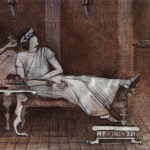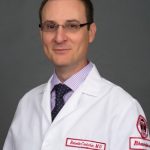Our colleagues at Virginia Commonwealth University in Richmond, Va., surveyed fellows, medical residents, and medical students. They carried out a detailed analysis of a lot of data. Not surprisingly, they found rheumatology fellows tended to value intellectual activities; lifestyle and economic issues seemed less important.
My all-time favorite perspective on this goes back to something I saved and pass on to residents interested in fellowships before they write their personal statements.7 Indeed, I just adapted this for part of my introductory remarks to our lectures on rheumatology for the first-year medical students.
The author wrote eloquently and timelessly, “Some years ago I spent many hours every year sitting on boards interviewing would-be medical students, and almost inevitably some member of the committee would round on the unfortunate boy or girl and ask what made them decide to take up medicine. The usual answer, thought up well beforehand as they knew this question was likely to be asked, was usually because they loved ‘people’ and wished to help them and so on. Members of the committee usually shifted uneasily in their chairs at this, as they had half-hoped for a rather more original (or possible truthful) answer. The best reply I every had was from an Arab youth who answered, ‘Because it is not without interest and carries financial security.’ I accepted him on that truthful answer, but alas, the political scene in his country changed and he never came back.”
Hart went on to list seven points as to why be a rheumatologist, which I will share here. (This was 30 years ago, remember.)
- “It runs through the whole field of general medicine. He who really knows the rheumatic disorders knows a very great deal of medicine.”
- “It is a huge clinical, therapeutic, social, and research challenge. Like Guinness, there’s a lot of it about, and the field for research in all aspects is wide open.”
- “You meet such a nice lot of people as patients and colleagues. It is a constant wonder to me how brave and stoical most rheumatic sufferers are. In clinical medicine in general and perhaps in rheumatology in particular you can make two new friends every day.”
- “The world is your oyster. Rheumatology is everywhere but strikingly different in different races and countries, and in most countries the subject is virtually untapped, and the rheumatic disorders an unopened book.”
- “Therapeutically it covers a wider field than most specialties, dealing with pharmacology, physical, social and occupational medicine, surgery, nursing, immunology, chiropody, etc. The therapeutic team is a large one, the rheumatologist being the central figure and coordinator in chief, thought the general practitioner has the difficult job of making it all come together, as it were, in the patient’s home.”
- “In the diagnosis and treatment of most rheumatic conditions, rheumatology makes great demands on one. There are around 180 conditions to be considered in the differential diagnosis of any so-called rheumatic disorder.”
- “In the management and treatment of the more chronic and intractable rheumatic diseases one has to be a mixture of a good psychologist, an applied pharmacologist, have a practical knowledge of physical and occupation methods, be a respected father confessor cum general physician, in fact be a wide-spectrum and sympathetic therapist. A cowboy could cure penicillin-sensitive pneumococcal pneumonia if he had access to the right drug, but it takes proper doctor to treat and manage rheumatoid arthritis.”
Bravo.
Food for Thought, and Maybe for Arthritis
When I started to write this feature, I promised to try and include something clinical, something basic, and something else. So here’s something “translational” that reflects on bench/basic science. I came across an interesting report about the potentially important biological effects of pomegranate extract.8,9


